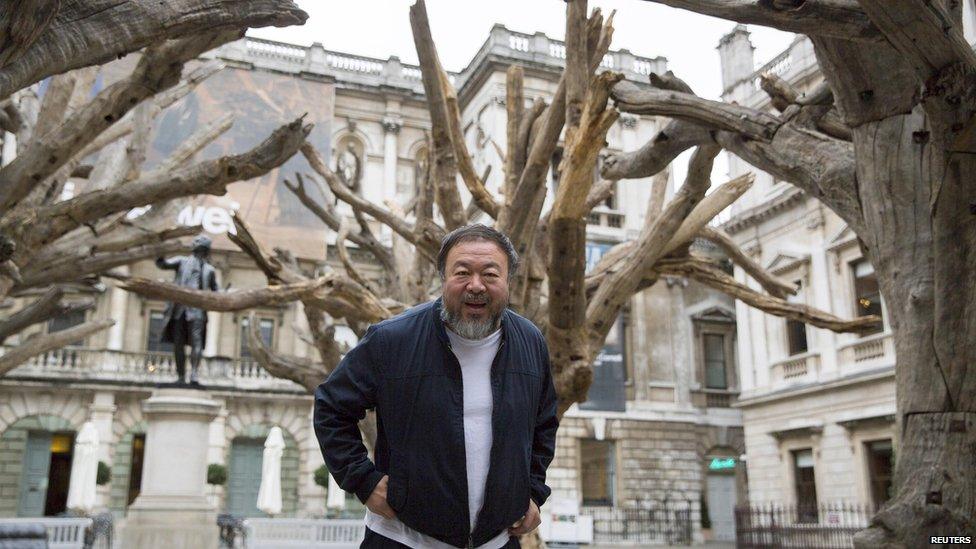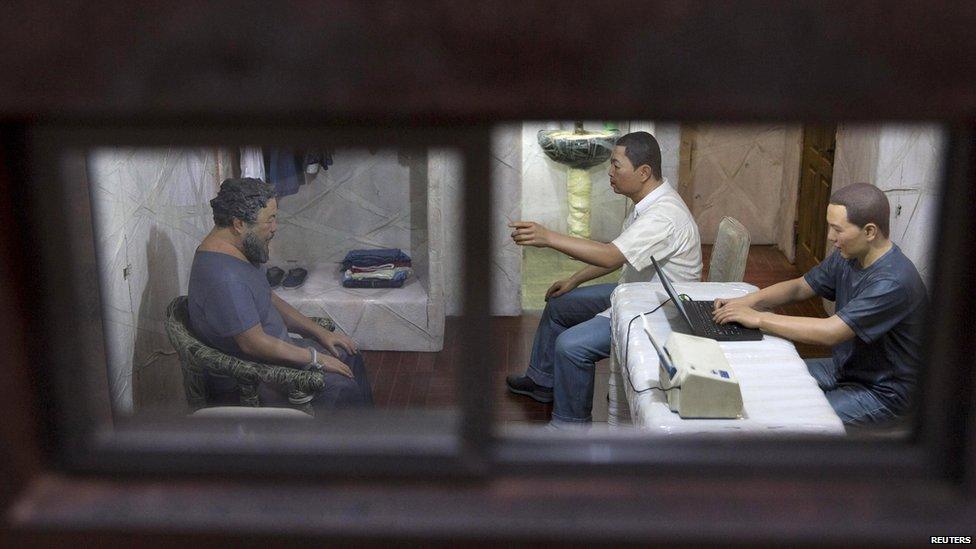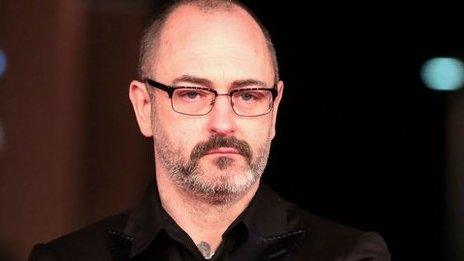Ai Weiwei: a changed man
- Published

Home Secretary Theresa May ordered officials to issue Ai Weiwei with a full six-month UK visa in July, reversing a decision not to grant him the travel document.
There's a lot of Ai Weiwei merchandise on sale in the Royal Academy shop. If you're feeling flush there's a small marble limited edition sculpture for £14,000. Alternatively - at the austerity end of things - there's a small wooden Ai Weiwei figure at £6.
It has a slogan written on its base, which says, 'Everything is Art, Everything is Politics'. It is an emphatic Ai Weiwei statement that is emphatically true of his work where the two are not just inseparable but co-dependent.
Take, for instance, the large brick and iron sculpture that is made from the ruins of the artist's studio in Shanghai, which was - he says - demolished by the Chinese authorities.
And then there's the six large, solid steel boxes punctured with occasional viewing windows, which - when peered through - show an incarcerated Ai Weiwei showering or sleeping or being interrogated during his 81 days locked up in a cell and unable to communicate with anyone other than the guards.
The massive installation of rusted steel rods that take up an entire gallery is formally beautiful and hauntingly sad. Each one of the thousands of rods come from the poorly built buildings that collapsed in the 2008 Sichuan earthquake. Tens of thousands of people were killed including many thousands of school children whose names - discovered by the artist against the will of the Chinese authorities - cover the walls of the gallery.

His exhibition opens on 19 September at the Royal Academy
Ai Weiwei gave me a guided tour of the exhibition. The last time I saw him was in October 2010 when his Sunflower Seeds installation covered the concrete floor of Tate Modern's Turbine Hall. The ensuing five years have not been easy for him. He was, he says, "disappeared" by the Chinese government for months on end without anybody knowing his whereabouts. He was beaten, bullied and feared for his life. He was then heavily fined, put under house arrest and had his passport confiscated.
His immense courage and clarity of thought remain, but his manner has softened. He is less ebullient and openly belligerent. He is still defiant, but some of his confidence has gone. Five years ago, I sensed he felt his art activism could, maybe would, cause the Chinese state to change its attitude to freedom of speech and judicial systems. He is much less optimistic now. China is changing he says, but "but not necessarily in the right direction".
For all his anger and frustration he maintains a philosophical approach to his art, much of which is inspired by Marcel Duchamp, the great French conceptual artist. His work is really about human nature, which he says is universal; it's only the circumstances that change.
The exhibition is powerful and poignant and handsome. The best thing about it though, is that this most important artist was able to come to London to oversee the installation of his works. Here is a man who is trying to change the world for the better: not through violence, or a political party or international business interests - but through art.
The Ai Weiwei exhibition is at the Royal Academy in London from 19 September until 13 December 2015.
- Published14 July 2015
